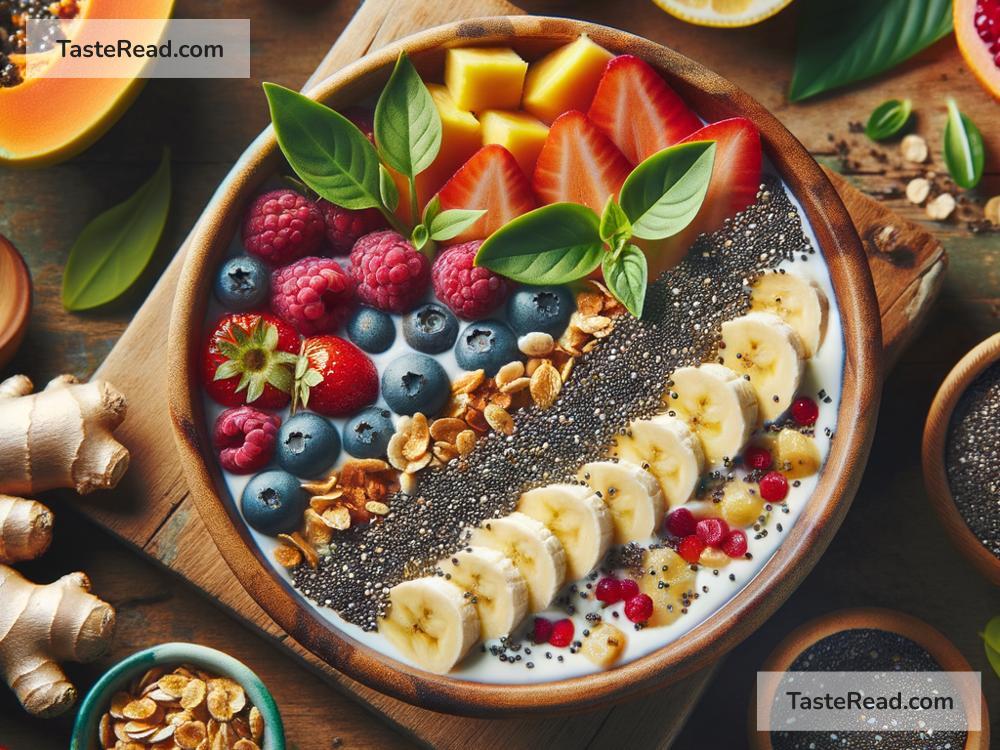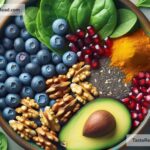Foods for Enhancing Digestive Health: Simple Tips for a Happy Gut
Our digestive system plays a big role in keeping us healthy. It breaks down the food we eat so our body can absorb nutrients and gives us the energy we need for daily life. But when our digestion isn’t working well, we can face uncomfortable problems like bloating, constipation, or stomach pain. Thankfully, eating the right foods can help improve digestion and keep our gut happy. In this article, we’ll explore some simple, easily available foods that can boost your digestive health.
Why Is Digestive Health Important?
Good digestion is key to overall health. When your digestive system is in poor shape, it can affect more than just your stomach. You may feel tired, experience skin issues, or even have trouble focusing. A healthy gut also supports your immune system, helping you fight off illnesses. The good news? You can take care of your digestive health by eating foods rich in fiber, probiotics, and nutrients that nourish your gut.
1. Fiber-Rich Foods: Nature’s Broom for Your Gut
Fiber is one of the best nutrients for digestion. It helps your body in two big ways:
- Keeps Things Moving: Fiber prevents constipation by adding bulk to your stool.
- Feeds Healthy Gut Bacteria: It serves as food for good bacteria in your gut, helping them thrive.
Some high-fiber foods include:
- Fruits: Apples, bananas, berries, and oranges are packed with fiber.
- Vegetables: Carrots, broccoli, spinach, and sweet potatoes are excellent choices.
- Whole Grains: Foods like oats, brown rice, quinoa, and whole-wheat bread support digestion.
Pro tip: Increase fiber in your diet gradually to avoid gas or bloating. Drink plenty of water to help fiber do its job.
2. Probiotic Foods: Fuel for Friendly Gut Bacteria
Your digestive system contains trillions of bacteria. Some of these bacteria are good for digestion, while others can cause issues. Probiotic foods contain live bacteria that are beneficial for your gut.
Popular probiotic foods include:
- Yogurt: Look for natural yogurt with live cultures listed on the label.
- Kefir: This creamy, fermented drink is packed with probiotics.
- Sauerkraut and Kimchi: These tangy fermented vegetables are not only delicious but also great for digestion.
- Miso and Tempeh: These are fermented soy products that support gut health.
Having probiotics in your diet can help improve digestion, boost immunity, and reduce symptoms like bloating or gas.
3. Foods Rich in Water: Stay Hydrated for Easy Digestion
Drinking water is just as important for your gut as eating the right foods. Staying hydrated helps your body break down food and prevents constipation. In addition to drinking plain water, you can eat foods with high water content.
Some hydrating foods include:
- Cucumbers: These crunchy vegetables are mostly water and are easy on your stomach.
- Watermelon: Perfect for a refreshing snack, this fruit is full of water.
- Zucchini: A versatile vegetable you can add to soups, salads, and stir-fries.
Eating these hydrating foods can complement your water intake and keep your digestion running smoothly.
4. Ginger: A Natural Remedy for Your Stomach
Ginger has been used for centuries as a natural solution for digestive problems, and for good reason. It helps ease stomach discomfort, reduces nausea, and stimulates digestion by increasing the movement of food through the stomach.
Here’s how you can include ginger in your diet:
- Add a few slices of fresh ginger to hot water for a soothing tea.
- Grate ginger into dishes like soups, stir-fries, or smoothies.
- Use dried ginger powder as a spice in your recipes.
5. Healthy Fats: Lubricate Your Digestive Process
Healthy fats in moderation can aid digestion. They help the body absorb certain vitamins and keep the lining of the gut strong.
Good sources of healthy fats include:
- Avocados: Creamy and nutritious, avocados support digestion.
- Olive Oil: Use it in salads or as a cooking oil.
- Nuts and Seeds: Almonds, walnuts, chia seeds, and flaxseeds provide fiber and healthy fats.
Choose these fats over unhealthy options like fried or highly processed foods, which can slow digestion.
6. Herbs and Spices: Gentle Helpers for Your Gut
Certain herbs and spices can give your digestive system a little extra support:
- Peppermint: Helps relax stomach muscles, reducing bloating.
- Fennel Seeds: Chewing fennel seeds after meals can aid digestion.
- Turmeric: Known for its anti-inflammatory properties, turmeric supports gut health.
Incorporating these herbs into your meals can make digestion easier while adding flavor to your dishes.
7. Avoid Foods That Cause Trouble
While eating healthy foods for digestion is important, avoiding certain foods is just as vital. Limit processed foods, sugary treats, and fried items, as these can slow digestion and lead to discomfort. If you’re prone to digestive issues, steer clear of excessive caffeine and alcohol, which can irritate the stomach.
Final Thoughts
Your digestive health depends on what you eat, so choose foods that are nourishing, natural, and gut-friendly. Include fiber-rich fruits and vegetables, probiotics like yogurt, and hydrating options like cucumber and watermelon. Add ginger, healthy fats, and digestive herbs for an extra boost. By making small but smart changes to your diet, you can enjoy better digestion and overall well-being. A happier, healthier gut leads to a happier, healthier you!
Let’s start taking care of our digestion, one meal at a time. What changes will you make today? Let us know in the comments!


